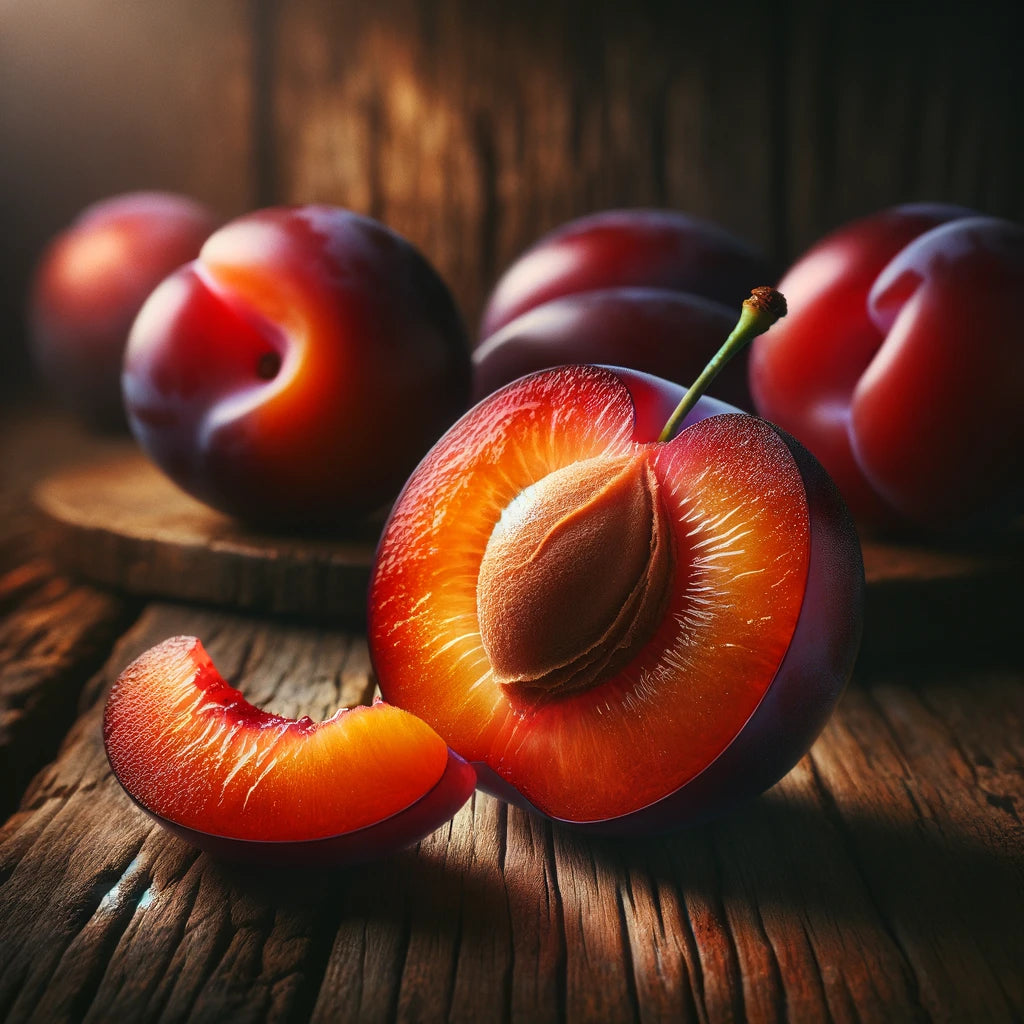Plums, with their juicy texture and sweet-tart flavor, are more than just a delicious fruit; they are a nutritional powerhouse with a rich history and potential numerous health benefits. This article delves into the world of plums and plum supplements, highlighting their historical significance and the reasons behind their growing popularity as a health supplement.
The Historical Roots of Plums
Plums are among the oldest cultivated fruits, with origins tracing back to ancient China, Egypt, and Rome. Historical records suggest that plums were consumed and appreciated for their taste and health benefits as early as 2000 BCE. Over the centuries, plums spread across the globe, with over 2000 varieties now grown worldwide. Each variety offers a unique taste, color, and nutrient profile, making plums a versatile ingredient in cuisines around the world.
Nutritional Benefits of Plums
Plums can be a great source of vitamins, minerals, fiber, and antioxidants. They are particularly rich in vitamin C, vitamin K, potassium, and dietary fiber.* The antioxidants found in plums, such as anthocyanins and chlorogenic acids, have been researched for their potential role on health.* Moreover, plums are parised for their ability to help promote digestion, thanks to their high fiber content and the presence of sorbitol, a natural sugar alcohol that may act as a mild laxative.*
Plums in Traditional Medicine
In traditional medicine, plums have been used for thousands of years to help treat a variety of ailments. In Chinese medicine, for example, plums are believed to be a remedy for digestive disorders, flu symptoms, and fatigue.* They may also be used to help detoxify the body and possibly support liver health.* The therapeutic properties of plums are attributed to their rich phytochemical content, which includes flavonoids, phenolic compounds, and minerals.*
The Rise of Plum Supplements
As interest in holistic health solutions grows, so does the demand for plum-based supplements. These supplements are derived from various parts of the plum tree, including the fruit, leaves, and bark, and are available in several forms, such as capsules, powders, and extracts.
Interesting Facts About Plums
- Plum Stones: In various cultures, plum stones have been used as a natural remedy for ailments and even as a tool for divination.
- Global Varieties: There are countless plum varieties, ranging from the small, sweet Japanese plum to the larger, tart European varieties.
- Prunes vs. Plums: Dried plums are commonly known as prunes. Pruning is not just a preservation method but also concentrates the nutrients, making prunes even richer in dietary fiber and minerals.
Plums offer a delightful blend of flavor, nutrition, and history. As both a food and a source of health-promoting compounds, plums and plum supplements have much to offer. Whether enjoyed fresh, dried, or as a supplement, plums continue to be a valuable addition to the diet, celebrated not only for their taste but also for their potential health benefits.
As always, talk to your doctor before taking any supplements. Get professional advice if you think you might need any plum supplement or are already taking one to ensure you're not exceeding the amounts you may need.

















































